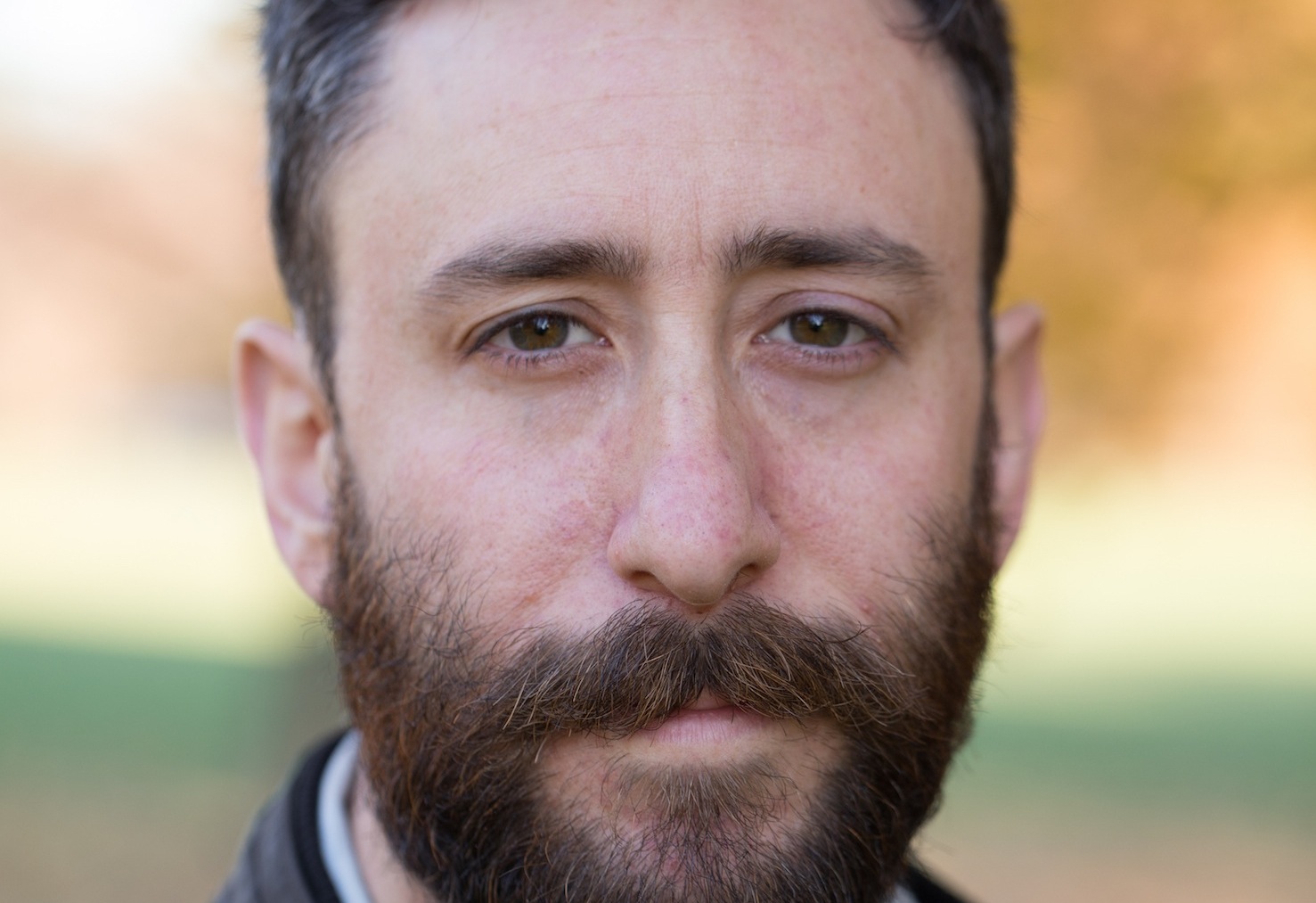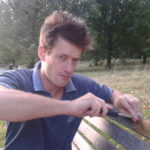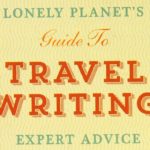Jonathan Arlan is a writer and editor. Born and raised on the Great Plains, he has lived in New Orleans, New York, Egypt, Japan, and Serbia and traveled in over thirty-five countries. His first book, Mountain Lines: A Journey through the French Alps was published in February 2017.
How did you get started traveling?
My parents took us on great family vacations growing up—New Orleans, San Diego, Seattle, Portland. Always cities. We never went camping or anything like that. But we went all over the country. They both grew up in Kansas City, but they love the ocean, so we usually went toward big bodies of water, which meant venturing pretty far from Kansas. I consider myself pretty fortunate; they could have just taken us to Branson, Missouri or “the lake” (whichever lake is closest)—places within driving distance, basically—or nowhere at all. But they went to the trouble of bringing us out of the Midwest for a few days every year.
I didn’t go overseas until my last year of high school, on a Jewish school trip to Poland and Israel. The idea of the trip, I think, was to make you really sad and angry in Poland and then ecstatically happy and proud to be a Jew in Israel. I remember almost nothing about the trip itself. But I do remember noticing that neither country looked anything like it was supposed to. In movies, pictures, and textbooks, Poland was always grey and full of bitter, sad people, but Krakow and Warsaw were beautiful cities (objectively prettier than the suburbs of Kansas City) and the people (also very pretty) seemed totally normal, happy even. Israel had been built up since I was a kid as this deeply holy place, a place where visitors are so overwhelmed when they arrive that they actually kneel down and kiss the ground at the airport, a real Jewish wonderland. It didn’t disappoint, exactly—it’s an extraordinary country—but so much of what I saw was so obviously ordinary—ordinary people doing ordinary things like shopping and eating in totally normal places like malls and McDonald’s. It’s such a trite realization—that I went with some preconceived ideas that were just way off—but I’m still surprised sometimes by how poorly informed my expectations of most places are. The upside to this, I suppose, is that I’m almost always surprised—usually in a good way—by the places I visit. And I’ve learned to arrive with fewer expectations. Often this comes at the expense of knowing very much about the place at all, which is another kind of problem. It’s a work in progress.
How did you get started writing?
I was a pretty serious reader way before I took a crack at writing. I think I thought about writing a lot, instead of actually doing any of it. In my late teens and early twenties, I really liked the idea of being a writer, and I managed to convince myself that reading (and watching movies) was just as valuable in terms of practice. I went to college in New Orleans and at some point a professor turned me on to travel writing (via Vagabonding, actually) and I started reading a lot of it, pretty much anything I could find, thinking I might like to become a travel writer one day (to this day, “travel writer” sounds like the coolest job title of all time). I even went so far as to line up a travel writing independent study during a semester abroad in Cairo, which I never completed it because there were more fun things to do in Cairo than hole up in the library and write.
I did, however, travel around Egypt and the Middle East and read a lot of great travel writing while doing so. More importantly, I got into the habit of taking notes for all the stories I’d write when, you know, I just sat down to write them. (Up until my professor told me it was too late, I still fully planned on working on the project.) Taking notes turned out to be a lot of fun, though. And it totally fit with an image I had of travel writers as people who are constantly scribbling notes into beat-up old notebooks. (It was very hard to picture them doing anything but scribbling notes, really, least of all typing. I actually think my moleskin came with a story about Bruce Chatwin printed on a little card and that was enough to get me started.) Journaling was an easy way to get outside of myself, to spin something halfway interesting out of basically nothing. And it directed and focused a curiosity I’d had about people and places that up to then I must have just ignored. With my pen and notebook, I could sit in a café for a couple hours, or walk around the city and get lost somewhere, and still have something to write about. Nothing that anyone would want to read, but that didn’t matter. I could talk to Egyptians, ask people about some scrap of local history, the story behind a street name or market. I could chat with perfect strangers—people I would never meet in a million years in Kansas or New Orleans—and pretend I was Paul Theroux.
What do you consider your first “break” as a writer?
My background is in book publishing, so my first break as a writer was really my first break as an editor. After a few years abroad in Japan, I was living in New York and working in the basement of the Strand bookstore (a break all by itself). And like everyone else working at the Strand (at least this is how it felt), I was desperately trying to get a job, an internship, an interview, a coffee—anything—with a book publisher. I must have sent out hundreds of applications that year and almost all of them went completely unanswered. Then I got a call from a very small, but very good publisher who needed an unpaid intern for twenty hours a week. I went in for an interview, got the job and through a bizarre series of coincidences and connections, managed to get a paid job at a bigger publisher a few months later. At both places I was incredibly lucky to work with some very smart people: publishing veterans, unbelievably hard working young editors, publicists and sales people, and a ton of real-life, professional writers, who, as it turns out, spend an insane amount of time writing.
As a traveler and fact/story gatherer, what is your biggest challenge on the road?
Fact and story gathering. I can easily spend a day (or a few days) lost in my head, wandering around—or just sitting around—reading. I love traveling alone, and I’m relatively good at it, but I’m lousy at most things that involve planning or organization logistics, so there’s very little accountability for what I end up doing with my time. I have to sort of force myself to get into it, to talk to people, to ask questions, to poke around. But once I do, I’m usually good. I’m always thinking of a line from Geoff Dyer’s story “Decline and Fall”: “In Rome I lived in the grand manner of writers. I basically did nothing all day. Not a thing.” I love to travel and I love to write, but deep down my dream is probably to live in Dyer’s grand manner of writers.
What is your biggest challenge in the research and writing process?
I find nearly every aspect of writing challenging and frustrating, which, like any creative effort, is also what makes it exhilarating. Everything from being accurate with details to wracking my brain for the right word to avoiding clichés like “wracking my brain” to finding the proper tone to telling a decent story to figuring out what I’m trying to say—it’s just one stumbling block after another and I’m pretty much always stumbling. There are so many moving parts in a story that it feels like a miracle when I can get them all to work together. There are probably some good parallels here between writing and traveling.
What is your biggest challenge from a business standpoint?
Understanding how any of it works. Writing for an audience still feels very new to me, and the business of it is overwhelming and extremely mysterious. Even the business of book publishing, which I’m more familiar with, is difficult to wrap my head around.
Have you ever done other work to make ends meet?
I worked as an editor at a busy publishing house for years. I’ve also taught English, given guitar lessons, done all kinds of non-writing freelance work, sold books, sold vacuums, and, a few times, sold some of my belongings. I once edited a book by a writer whose author bio said that he had worked as an actor, a shepherd, and a circus clown. I think about that a lot.
What travel authors or books might you recommend and/or have influenced you?
So many travel books have had a profound influence on me. Early on it was the classics: Paul Theroux’s The Great Railway Bazaar, Robert Byron’s The Road to Oxiana, anything by Patrick Leigh Fermor—books that made me want to see the world. When I discovered Pico Iyer, I immediately fell in love with his work, which has this real soulfulness to it. His stories pack a punch that sneaks up on me every time, even when I’m rereading something of his I’ve already read half a dozen times. (I keep a link to his story “In the Realm of Jetlag” in my browser and check in on it from time to time.)
I read Rosemary Mahoney’s Down the Nile right after I returned from Egypt and immediately wanted to go back and do the whole semester again—differently. I regretted the half-assed job I’d done of taking advantage of such an astonishing place while I was actually there. Why hadn’t I thought to row myself down the Nile? Or camp with Bedouins? Or learn more than twelve words of Arabic? Or do any number of interesting things that occurred to me only after I’d left. I made a mental note to not let that happen again, to really dig into a place when I’m there, to immerse myself. I’m not sure if I’ve gotten any better at it in the years since, but at the very least I’m more conscious of it.
I’m a huge fan of Jan Morris’s work, and I had a copy of her book Trieste and the Meaning of Nowhere for years before I read it. I don’t know why, but I wanted to save it for when I went to Trieste, a city that had fascinated me for a long time and that I knew I’d visit at some point. I started reading it, finally, on an Italy-bound train from Zagreb, and finished it a few days later in the park next to Archduke Maximillian’s Miramare castle. The book resonated with the city in an odd way and now I can’t think of one without thinking of the other. I have memories of Trieste that may actually belong to Jan Morris. I’m okay with that.
I’ll read anything about mountaineering, even though I am not even remotely a mountaineer. Books about mountains tend to be inspiring even when they’re tragic, which, I think, has something to do with the huge personalities of mountain climbers. David Robert’s The Mountain of My Fear and Walter Bonatti’s The Mountains of My Life are two classics that made me think I should spend more time in the mountains. Come to think of it, they are almost certainly what got me thinking about mountains in the first place, which led me to spend a month in the French Alps and write about it.
A few random others that I’m always recommending: Blue Highways by William Least Heat-Moon, Pilgrim at Tinker Creek by Annie Dillard, Adrift by Steven Callahan, William Finnegan’s Barbarian Days, which isn’t really a travel book, but has a remarkable travel book hiding inside of it, Carl Hoffman’s Savage Harvest, and two anthologies that are packed ridiculously full of stunning travel/adventure writing: The Best of Outside: The First 20 Years and Wild Stories: The Best of Men’s Journal. The list could go on for pages, so I’ll stop here.
What advice and/or warnings would you give to someone who is considering going into travel writing?
I couldn’t possibly give travel writing advice to anyone except to encourage people to travel alone and to stay open to advice from those who sounds like they know what they are talking about. I’ve learned quite a bit by acknowledging that nearly everyone around me is smarter and more experienced than I am in one way or another. There’s always something to learn and there’s usually someone to learn it from.
What is the biggest reward of life as a travel writer?
I really think travel and writing complement each other more than people realize, or at least more than I realized. Traveling can get so overwhelming so quickly, especially if you’ve gone off the tourist trail a little—you’re in a new city, you don’t know anyone, you don’t know the language, the food is weird, simple interactions are inexplicably difficult, all your money has suddenly been transformed into an insane wad of dirty bills and coins. Writing is a great way to sort yourself out amidst all that information, to make sense of it, basically. I suspect that’s why people like to send letters or postcards or emails home from exotic places (other than to make those people back home jealous and tell them they’re still alive). It feels good to boil a complicated thing down to a few lines, like you’ve mastered it. It’s even better if those lines actually manage capture something true and fresh about the place. I like to think that in the process of training myself to think and write more carefully about travel, I’ve also trained myself to be a better traveler—to look a little deeper, to think more openly. Plus, as a genre, travel writing can contain and combine so many kinds of storytelling—memoir, history, science, sociology, adventure. Very little feels off-limits. That freedom is truly rewarding.
With my book, the biggest reward is the thought that I might share shelf (and Internet) space with the writers, books, and stories I’ve admired for so long. It feels like I’ve wedged myself into a seat at the cool kids’ table.





